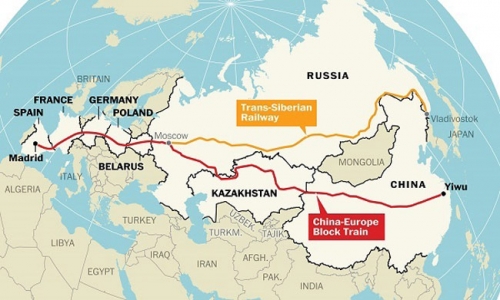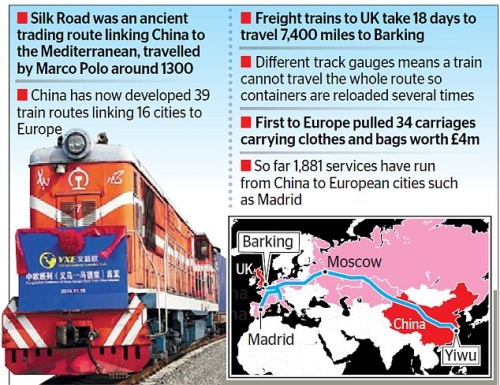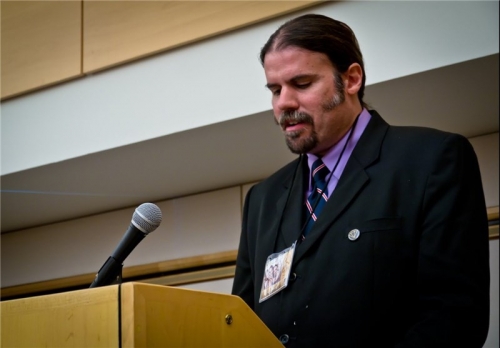This is the transcript of an interview I recently did with a Swiss journal.
In your book “Attack the System” you describe the current ideology of the West as a “totalitarian humanism,” yet you claim to be to the left of Marx (I am referring to a statement you made on the Tom Woods Show). You describe yourself as an anarchist, yet you hold speeches at Richard Spencer’s National Policy Institute. Please tell us: Who is Keith Preston?
I am to the left of Marx in the sense that anarchism was always the left-wing opposition to Marxism. This was true even in the period before the First International when anarchists such as Pierre Joseph Proudhon and Max Stirner would voice their opposition to state-socialism of the kind championed by Marx and his predecessors like Louis Blanc. Marx was so incensed by these attacks from anarchists that he devoted considerable effort to his own counterattacks. For example, much of Marx’s The German Ideology is an attack on Stirner, and Marx’s The Poverty of Philosophy is an attack on Proudhon. It was anarchists such as Mikhail Bakunin that led the opposition to the influence of Marxism in the First International, for which the Bakuninists were expelled. Bakunin was a prophetic opponent of state-socialism and predicted that if the Russian socialist revolutionaries ever gained state power they would become as tyrannical as the czars ever were. Bakunin essentially predicted much of the course of the twentieth century when state-socialist regimes ruled one third of the world’s nations. The anarchists were not only critics of the state, including state-socialism, but were also early critics of imperialism and colonialism during the heyday of these in the nineteenth and twentieth century. Marx and Engels, on the other hand, were champions of imperialism and colonialism, believing these to be historically progressive forces. All of these questions are examples of why I, as an anarchist, am to the left of Karl Marx.
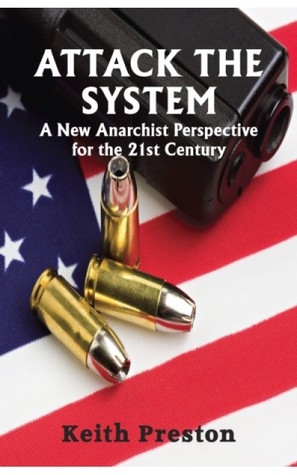 I have spoken to the National Policy Institute on two occasions. I spoke there in 2011, and presented a critique of mass immigration that pointed out that large scale migration of the kind that modern societies are experiencing is something that is being driven by the entire range of power elite institutions at the expense of the native populations and working classes of particular societies. The impact of mass migration is to import a “reserve army of labor,” a nice Marxist term, into the advanced capitalist societies for the purpose of wage suppression and exacerbating social conflict in a way that undermines working class cohesion and solidarity. This has the effect of strengthening the forces of state and capital, while simultaneously depriving the developing and underdeveloped world of human capital thereby undermining development and progress in poor countries. The liberal class supports this process because it allows them to pose as cosmopolitan humanitarians while advancing their own class interests and political interests.
I have spoken to the National Policy Institute on two occasions. I spoke there in 2011, and presented a critique of mass immigration that pointed out that large scale migration of the kind that modern societies are experiencing is something that is being driven by the entire range of power elite institutions at the expense of the native populations and working classes of particular societies. The impact of mass migration is to import a “reserve army of labor,” a nice Marxist term, into the advanced capitalist societies for the purpose of wage suppression and exacerbating social conflict in a way that undermines working class cohesion and solidarity. This has the effect of strengthening the forces of state and capital, while simultaneously depriving the developing and underdeveloped world of human capital thereby undermining development and progress in poor countries. The liberal class supports this process because it allows them to pose as cosmopolitan humanitarians while advancing their own class interests and political interests.
I spoke at the National Policy Institute again in 2015 where I presented a critique of American imperialism as a unique and perhaps unprecedented threat to the survival of the world’s many ancient and unique cultures. These are being absorbed in the homogeneity of cultural imperialism driven by the commercial culture that the United States seeks to impose on the world by means of neoliberal hegemony. This is a process that many specialists in international relations have referred to as “McDonaldization,” “Wal-Martization,” or simply as “Americanization.” During that presentation I focused to a great degree on the Americanization of Europe, which I felt to be appropriate given the Eurocentric orientation of the National Policy Institute, although I could have just as easily focused on Southeast Asia, the Middle East or the Amazon rain forests. But what I said at the National Policy Institute was essentially the same as what I would say if I were speaking to a Communist or Islamist organization. I am interested in networking with all enemies of neoliberal imperialism.
What exactly do you mean when you say “totalitarian humanism”?
Totalitarian humanism is a term that I took from a countercultural writer many years ago who suggested that a phenomenon called “totalitarian humanism” was developing into a third wave of totalitarian political ideology in the developed world. The first of wave was Communism which claimed to be liberating the working class from capitalist oppression. The second wave was Fascism or Nazism which claimed to be advancing the interests of allegedly superior races and nations over allegedly inferior ones. The third wave is Totalitarian Humanism which claims to be advancing the interests of all of humanity, but in reality postulates the same kind of dualistic millenarianism rooted in out-group enmity, and with the same double standards, mendacity, and authoritarianism that were found in these older totalitarian ideologies.
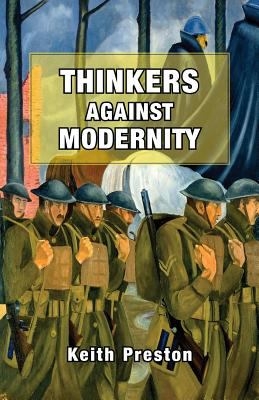 We see many different examples of this. On a localized level, we see examples of the state attempting to micromanage every aspect of life for the purpose of advancing some kind of therapeutic, egalitarian, or ostensibly humanitarian objective. This include everything from banning smoking in pubs, to arresting parents for allowing children to play outside unsupervised, to levying special taxes on foods and beverages for social engineering purposes. We also see examples of the state attempting to subjugate local communities, regions, the private sector, and civil society for the purpose of imposing ostensibly progressive values on all of these competing centers of power. This has the effect of eroding zones of autonomy that serve as a bulwark against the state. We see the example of people being removed from their professional or academic positions for expressing ideas that defy progressive orthodoxy. The worst example is what I call “human rights imperialism,” which involves destroying entire nations such as Libya and Iraq under the guise of rescuing them from oppression.
We see many different examples of this. On a localized level, we see examples of the state attempting to micromanage every aspect of life for the purpose of advancing some kind of therapeutic, egalitarian, or ostensibly humanitarian objective. This include everything from banning smoking in pubs, to arresting parents for allowing children to play outside unsupervised, to levying special taxes on foods and beverages for social engineering purposes. We also see examples of the state attempting to subjugate local communities, regions, the private sector, and civil society for the purpose of imposing ostensibly progressive values on all of these competing centers of power. This has the effect of eroding zones of autonomy that serve as a bulwark against the state. We see the example of people being removed from their professional or academic positions for expressing ideas that defy progressive orthodoxy. The worst example is what I call “human rights imperialism,” which involves destroying entire nations such as Libya and Iraq under the guise of rescuing them from oppression.
In your political evolvement you went from the Christian right to the far left, from there to libertarianism and after that to the militia movement. At the end of this journey you call yourself an anarcho-pluralist. What is the worldview that stands behind this term?
Anarcho-pluralism is a term that I first heard from an anarchist named Sam Dolgoff many years ago. He was a veteran of the classical anarchist movement of the early twenty first century, and had written extensively about the Spanish Civil War. He used the term anarcho-pluralism to describe his embrace of the range of anarchist thought in terms of potential forms of economic self-organization by the working class. I use the term in a similar but more expansive way. It is an umbrella term that I use to describe the entire range of anarchist thought and tendencies, as well as libertarian, decentralist, anti-state, and anti-authoritarian movements and ideologies generally.
In your book you contrast that with what you refer to as “neoliberal imperialism.” Could you elaborate on what you mean by that?
Neoliberal imperialism is a term that is meant to subscribe the system of global plutocratic rule by means of the G20, individual states that are aligned with the major military and trading blocks, the World Bank, the International Monetary Fund, the World Trade Organization, the United Nations, NATO, transnational corporations, and the wider network of financial, business, media, academic, governmental, and nongovernmental organizations that are connected to this system. At present, for example, about 150 corporations control nearly half of the world’s wealth, and about 200 states control virtually all of the world’s territory.
How would an anarcho-pluralist movement look like and what strategy would it apply, especially given the widely varying conceptions different anarchists have of things like ethics and property rights?
Anarcho-pluralism would involve efforts to decentralize systems of political and economic power into the hands of regions, localities, voluntary associations, and other kinds of communities and organizations that are comprised of people pursing their own interests, whether individually or collectively, in a way that is independent of the state or other external institutions. I do not see anarcho-pluralism, or pan-anarchism, as a prescription for any particular kind of organizational forms, specific sets of economic arrangements, positions on social issues, or as anything which favors any set of identity groups or value systems over others. Rather, anarcho-pluralism could include an infinite array of interests of these kinds, from indigenous tribes that prefer a pre-modern existence, to religious monasteries, to hippie communes, to Afro-centric or neo-pagan or LGBTQ or vegan and animal rights oriented communities, to medieval or Star Trek themed communities, to Islamic or Hasidic or Kekistan communities, to rave partiers to those who dream of colonizing space with communities of robots, from nudist colonies to conservative religious communities, or just ordinary, boring centrist communities.
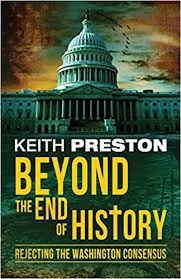 Just as anarcho-pluralism might include an infinite array of values systems and identity or affinity groups, it might also include a similar array of strategies. These could include secession movements that wish to proliferate the number of sovereign countries, regions, and localities, the creation of micronations and independent municipalities, to those building seasteads on the oceans, to anarcho-syndicalist labor unions and worker cooperatives, to mutual aid societies, to the practice of agorist countereconomics, to civil disobedience or independent militias, to alternative currencies, to any kinds of communities, organizations and activities that are functioning independently of the state and which will be the prototypes for the eventual elimination of the state. What I have mentioned are only a few examples.
Just as anarcho-pluralism might include an infinite array of values systems and identity or affinity groups, it might also include a similar array of strategies. These could include secession movements that wish to proliferate the number of sovereign countries, regions, and localities, the creation of micronations and independent municipalities, to those building seasteads on the oceans, to anarcho-syndicalist labor unions and worker cooperatives, to mutual aid societies, to the practice of agorist countereconomics, to civil disobedience or independent militias, to alternative currencies, to any kinds of communities, organizations and activities that are functioning independently of the state and which will be the prototypes for the eventual elimination of the state. What I have mentioned are only a few examples.
What is your biggest critique of the current mainstream anarchism in the United States?
The mainstream anarchist movement in North America is largely a youth subculture rather than a political movement. To the degree that mainstream anarchism is politically serious at all, it largely limits itself to a focus standard left-progressive issues, and largely renders itself to being not much different from the local precinct chapter of the Democratic Party as a result. A much more serious issue with mainstream anarchism involves the fact that most anarchists have yet to fully comprehend Nietzsche’s critique of slave morality or Stirner’s critique of humanism, much less incorporate these ideas into their paradigm. Many dissidents from the dominant slave morality paradigm within the general anarchist milieu often error in the other direction and become reactionaries. An example would be those former libertarians that have embraced the neo-reactionary movement, the alt-right or neo-fascism. I am in favor of the development of a form of anarchism that is in opposition to slave morality but without embracing reaction. I suppose you could say that I represent the post-postmodern revolutionary post-left.
In chapter 1 of “Attack the System” you delve into the philosophical foundations of anarchism and you exclusively name German thinkers: Friedrich Nietzsche, Max Stirner and Ernst Jünger. Let’s go through them: How has Nietzsche laid the foundations for modern-day anarchism and what can he tell us about the crisis of the West?
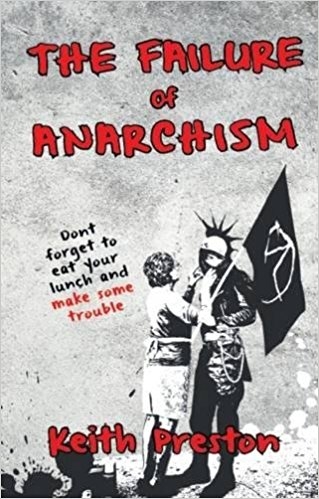 Nietzsche was not an anarchist. What Nietzsche did was issue the most serious reply to anarchists and one that anarchists have yet to address. Nietzsche considered the political Left to be a modernized, secularized version of Christian morality, in the sense of the idea of the suffering just and notions like the least will be the first, and he considered anarchists to be the Left’s version of fundamentalist true believers. This critique is absolutely correct, and this is why so many mainstream anarchists have such a pronounced inclination towards the persecution of anyone they deem insufficiently progressive that have become the modern versions of heretics. This is why we see ostensibly “anarchist” Antifa thugs attacking peaceful people who are engaged in the exercise of free speech. Until anarchists examine this flaw in their own thinking, and make the necessary changes in their own actions, they will never be anything more than a prototype for a new kind of authoritarian statism of the kind that I call “totalitarian humanism.”
Nietzsche was not an anarchist. What Nietzsche did was issue the most serious reply to anarchists and one that anarchists have yet to address. Nietzsche considered the political Left to be a modernized, secularized version of Christian morality, in the sense of the idea of the suffering just and notions like the least will be the first, and he considered anarchists to be the Left’s version of fundamentalist true believers. This critique is absolutely correct, and this is why so many mainstream anarchists have such a pronounced inclination towards the persecution of anyone they deem insufficiently progressive that have become the modern versions of heretics. This is why we see ostensibly “anarchist” Antifa thugs attacking peaceful people who are engaged in the exercise of free speech. Until anarchists examine this flaw in their own thinking, and make the necessary changes in their own actions, they will never be anything more than a prototype for a new kind of authoritarian statism of the kind that I call “totalitarian humanism.”
Nietzsche also thought Western civilization was headed for an existential crisis that was rooted in the loss of traditional cultural, religious, moral and philosophical ideas, and that modern ideologies were an effort to find an appropriate substitute. He correctly surmised that these substitutes would prove to be unsatisfactory and that by the twenty-first century Western civilization would be faced with the crisis of nihilism. The only possible resolution of this crisis, in Nietzsche’s view, was the “transvaluation of values,” which would in turn involve a process of both individual and collective “self-overcoming,” and ultimately “becoming who we are,” once again on both the individual and collective level. I am inclined towards the view that Nietzsche regarded the pre-Socratics, particularly the Sophists, as a kind of prototype for what a post postmodern world might maintain as a philosophical or intellectual foundation. If so, this would represent of a kind of cyclical process that involved a return to a kind of primordial essence. In fact, I am inclined towards the view that this is what Nietzsche meant by his concept of “eternal recurrence.”
How about Stirner?
Stirner was a very similar to thinker to Nietzsche in the sense of recognizing that, as Stirner himself put it, “our atheists are very pious men.” Like Nietzsche, he recognized that humanism of the kind that came out of the Enlightenment was not a rejection of religion or even of Christianity as much as a kind of secularized Christian heresy. I am inclined to think that Nietzsche was influenced by Stirner in an unacknowledged way, and that Nietzsche’s concept of the overman was essentially rooted in Stirner’s idea of a society that consisted of a union of egoists with the idea that the overman would be the product of the union of egoists. However, it is interesting that we have self-proclaimed egoists today who utterly fail to grasp this concept.
And what is Ernst Jüngers contribution?
Ernst Junger’s later work is particularly important for the purposes of cultivating a well-developed philosophical anarchism, especially his novel “Eumeswil” where he introduces the idea of the “Anarch.” During his elder years, Junger was less of a social or political critic, and was instead focused on how the individual might achieve an inner freedom in the face of persistent tyranny that abounds on an external level. His thinking on this question was heavily influenced by Stirner and also resembles certain Buddhist precepts in many ways. The core idea of the Anarch is one that renounces authority on an internal basis even if one does not defy authority on an external basis. The Anarch grants loyalty to nothing but his or her own thoughts and thereby achieves a kind of inward resolution of conflict. However, there is another way in which Junger’s thought is relevant to anarchism and that is his conception of a warrior ethos that stands in opposition to slave morality. An anarchist that was guided by the ideas of Nietzsche, Stirner, or Junger would not be a religious zealot persecuting those who have sinned against slave morality, but an egoist that is both internally self-liberated, and engaged in warfare against external authority as an expression of self-overcoming or becoming who they are.
What is your personal critique of modernity?
Modernity is a model of civilization where traditional institutions have largely been eradicated and replaced by the dominance of the impersonal corporate state that rules as an abstract entity even as its personnel changes. The features of modernity are the public administration bureaucracy, mass society dominated by mass institutions and organizations, the hegemony of commercial values and consumerism with social status largely conferred on the basis of one’s capacity for what Thorstein Veblen called “conspicuous consumption,” technology fused with scientism, therapeutism egalitarianism replacing theocratic traditionalism as the foundation of civil values, sophisticated systems of propaganda promulgated by the mass media and the public relations and advertising industries, the rise of the culture industry, the erosion of intermediary institutions, atomized individualism, and the erosion of individual identity except for that of subject of the state, worker, and consumer. Modernity is essentially a replication of feudalism but within the context of a commercial and technologically driven society where mass bureaucratic institutions assume the role of the new manorial systems.
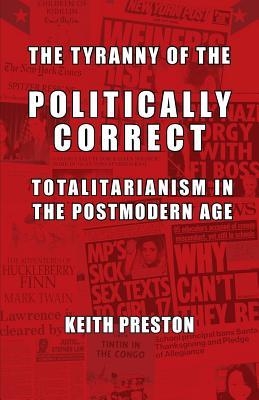 You engage in conversations with all anarchist camps, yet refuse to pick a label for yourself except for “anarchist without adjectives.” Which critique would you voice specifically towards Anarcho-Capitalism?
You engage in conversations with all anarchist camps, yet refuse to pick a label for yourself except for “anarchist without adjectives.” Which critique would you voice specifically towards Anarcho-Capitalism?
Anarcho-Capitalism is the mirror image of Anarcho-Communism in the sense that just as Anarcho-Communism runs the risk of degenerating into Big “C” Communism so does Anarcho-Capitalism runs the risk of degenerating into Big “C” Capitalism and becoming a new kind of plutocratic rule. I would have parallel critiques of virtually any school of anarchist thought, from anarcho-primitivism to anarcho-transhumanism. For example, I am neither an Austrian nor a Marxist when it comes to economic critiques but instead to draw from the better ideas of multiple schools of economic thought. That might include the Marxist or Austrian paradigms in certain ways, but no more so than it would include, for example, the paradigms of behavioral economics or institutional economics. Rather, it is necessary to critique systems of power wherever they appear, and in whatever kind of context, whether political, economic, or social. I am heavily influenced by elite theory in this regard, as well as a range of critics of power from Bertrand Russell to Michel Foucault.
What is your personal brand of anarchism grounded in? Utilitarianism? The self-ownership of one’s own body?
I am neither a utilitarian nor do I subscribe to self-ownership theory which is a derivate of Locke’s natural rights doctrine. I see these ideas as particular to the tradition of English liberalism, which is a fine tradition but not one that represents universal principles. Instead, I regard Anarchist philosophy a representing an intellectual trajectory that can be traced back to Zeno and Diogenes in the West and Zhaung Zhou and Lao-tzu in the East, and which has prototypes in all sorts of indigenous, traditional, and pre-modern societies. Anarchism crystallized as a modern intellectual movement during the time of the Enlightenment with both a left and right wing dimension, with many different cousins and distant relatives, and which continues to evolve and assume new forms over time. Anarchism can be Dorothy Day and Ivan Illich, or it can be the Situationists or the Boston Anarchist Drinking Brigade. It is necessary to move away from singular models and closed systems towards pluralistic models and open-ended systems.
Let’s say you were able to recommend one thinker to the readers of eigentümlich frei, who would make them question their premises. Who would that be?
The thinker that I would recommend would depend on the general political and cultural orientation of the individual I was speaking with. For someone who was more left-leaning, I might recommend Arthur Koestler’s “Darkness at Noon,” or Carl Schmitt’s “The Concept of the Political.” Koestler’s work illustrates very well the legacy of oppression that has historically been perpetrated by ostensibly “progressive” regimes. Schmitt challenges utopian illusions in favor of an uncompromising realism. Leftists of any kind have a bad habit of thinking only conservatives and reactionaries can be tyrants. For someone who was more right-leaning, I might recommend Peter Gay’s “The Enlightenment” or Stefan Zweig’s “The Right to Heresy.” Rightists of any kind have a bad habit of glorifying the past as having been better than it really was. In reality, the past was often quite terrible. One particular thinker whose works I would recommend to both leftists and rightists would be Thomas Szasz, a heterodox psychiatrist who developed a classical liberal-influenced critique of the modern therapeutic state.
What is your favourite anarchist thinker and why?
I can’t say that I have a single favorite anarchist thinker. I am influenced by too many thinkers in anarchist and related traditions to identify one that really stands out. Philosophically, I am the closest to Stirner. I am closest to Proudhon on economics. I very much appreciate Bakunin as a class theorist, particularly his emphasis on the lumpenproletariat, as well as a strategist and critic of Marxism. Kropotkin’s analysis of the historical development of the state is similar to my own. I am in general agreement with Voline’s critique of the limitations of Platformism. I also very much appreciate the American individual-anarchist tradition. The organizational methods employed by the Spanish anarchist movement are worthy of study. There is an English anarchist writer named Peter Marshall that has produced a voluminous history of anarchism that outlines a trajectory that is very similar to the one that I used when describing the anarchist tradition. There is an anarchist anthropologist named Harold Barclay that has examined anarchist trends in pre-modern societies. If I had to pick one of the more well-known figures from history, it would probably be Voltairine de Cleyre since her “anarchism without adjectives” approach is very similar to my own. Another tradition I admire is panarchism which was first formulated by Paul Emile de Puydt, and the leading contemporary proponent of which is John Zube. I am also pleased to see the ongoing proliferation of new forms of anarchism, and the blending of anarchist ideas with those that have been accumulated from a vast range of other traditions. Tendencies such as Green anarchism, Christian anarchism, black anarchism, national-anarchism, anarcha-feminism, indigenous anarchism, post-colonial anarchism, Islamic anarchism, queer anarchism, anarcho-monarchism, anarcho-transhumanism, and geo-anarchism are examples of these ideas.
I’d like to end the interview with the words you chose to start your book with: “To all enemies of the state, whoever they are and wherever they may be.” Any objections?’
No objections at all. I would say that is an excellent way to end any statement or conversation.



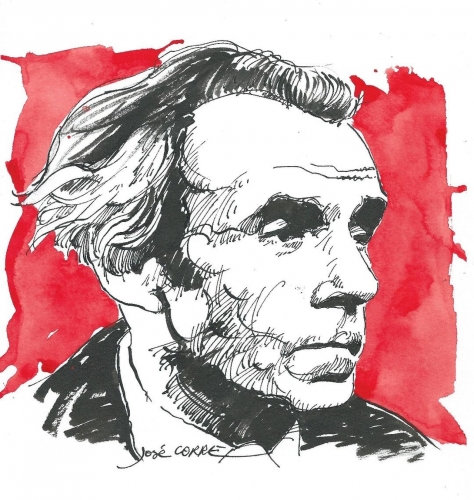

 del.icio.us
del.icio.us
 Digg
Digg